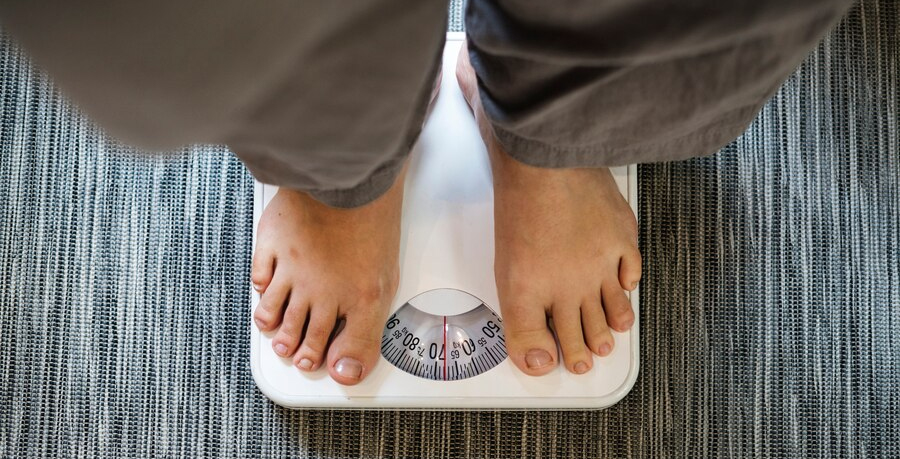A New Mom's Postpartum Guide: Confinement Myths, Weight Loss, and Breastfeeding
15 August 2024

After nine months of expectation and waiting, your little bundle of joy has finally arrived!
A joyous new chapter in your journey of motherhood has now begun. This is a time of physical and emotional adjustment as your body heals from childbirth, and you adapt to the new role of caring for your newborn. It's also an opportunity to establish healthy habits that will support both you and your baby as you embark on this beautiful journey together.
In this article, we will explore essential topics such as diet myths during your confinement period, achieving a healthy weight after childbirth, and breastfeeding.

Confinement Diet Myths
During confinement, mothers are often recommended to follow traditional practices that are believed to aid in their recovery and ensure the health of their baby. But how much of this advice is based on fact? Let’s explore some common confinement diet myths and the truths behind them.
Myth: Tonic or Rice Wines Should Be a Staple in Confinement Dishes for Blood Circulation and Recovery
Fact: While rice wine is often included in traditional confinement dishes, it’s essential to be aware of the potential risks to your baby’s health. Small amounts of alcohol can remain in cooked food, and the alcohol you consume can pass into your breast milk. Exposing your baby to too much alcohol can affect their growth, development, and sleep. To ensure your baby’s safety, breastfeeding mothers are advised to wait at least three hours after consuming alcohol before breastfeeding or expressing milk.
Myth: Fruits and Vegetables Are Too “Cooling” for the Body and Should Be Avoided During Confinement
Fact: Fruits and vegetables are in fact vital for postpartum recovery due to their high fibre content, which helps relieve constipation. Instead of avoiding them, consider incorporating "warmer" ingredients like ginger or sesame oil when cooking vegetables to balance their “cooling” effect. It is also wise to consume fewer "cooling fruits" such as apples, guavas, grapes, and papayas during this period.
Myth: Eating Ginger Will Cause My Baby to Have Jaundice
Fact: There is no scientific evidence linking ginger consumption to jaundice in newborns. Jaundice occurs because of an immature liver in the newborn, which leads to a slower breakdown of bilirubin. This condition is common, usually temporary, and unrelated to the mother's diet.
Myth: Coffee Should Be Avoided
Fact: While it is true that caffeine can cause irritability in babies and affect sleep in mothers, it doesn’t have to be completely avoided. Breastfeeding mothers can safely consume up to one cup of coffee daily. Monitoring your baby's reaction to caffeine is key to finding the right balance.
Myth: Only Meat, Liver, and Herbs Are Permitted to Make Up for Blood Loss During Delivery
Fact: A balanced diet is crucial for postpartum recovery, and it should not be limited to just meat, liver, and herbs. Half of the diet should include fruits and vegetables to replenish essential nutrients. Whole grains like brown rice and wholemeal bread are also beneficial, as they contain phytochemicals that aid in iron absorption.
Returning to a Healthy Weight After Your Pregnancy

In the midst of adapting to the changes and caring for your baby, it can be a struggle to lose that extra baby weight and achieve a healthy weight again after delivering your baby. Here are a couple of tips to help:
- Breastfeed Your Baby
Breastfeeding is not only beneficial for your baby but also helps in postpartum weight management. Producing breast milk uses about 450 to 500 calories daily, so exclusively breastfeeding for the first six months is recommended. Aim for a gradual weight loss of 0.5kg per week postpartum. - Stay Active
Light exercise, such as walking or engaging in activities that strengthen major muscle groups like the back and abdomen, is recommended. Start with 20 to 30 minutes daily, and always consult your doctor before beginning physical activity, especially if you had a caesarean delivery. - Stay Hydrated
Drinking at least eight glasses of water daily helps maintain a sense of fullness and ensures adequate breast milk production. Hydration is essential for both mother and baby’s health - Practise a Healthy and Balanced Diet
Ultimately, what you eat is crucial for returning to a healthy weight after pregnancy. Here are some key tips:- Limit foods and beverages high in added sugar.
- Choose low-fat cooking methods such as steaming, boiling, grilling, or baking.
- Incorporate whole grains and high-fibre foods like fruits and vegetables to increase satiety.
- Slow down when eating to easily notice when you’re full.
- Avoid crash diets to maintain energy levels and support recovery.
Beginning Your Breastfeeding Journey

Breastfeeding offers benefits for both the baby and mother. Not only does it help you bond with your baby, human breast milk provides the best nutrition as it is packed with nutrients and antibodies that help boost your baby’s immune system.
In fact, studies have shown that breastfeeding plays a role in reducing the risk of your child becoming overweight or obese later in life. Bioactive molecules in human milk, such as hormones like leptin and adiponectin, are involved in regulating milk intake in infants and protect against obesity.
How Much and How Often to Breastfeed
First Days: In the early days, the milk you first produce will be minimal in amount. This is called colostrum, a nutrient-rich, yellowish milk that meets your newborn’s needs.Your baby will only need small amounts at this age.
First Weeks and Months: As your baby grows, the intervals between feedings will lengthen. Expect your baby to feed every 2 to 4 hours on average. Some babies may feed as often as every hour, a pattern known as cluster feeding, while some may have longer feed intervals of 4 to 5 hours. Breastfeeding 8 to 12 times in 24 hours is typical during this stage.
Babies can regulate their feeding. They will take what they need and stop when they are full. They should seem content and drowsy after feeding when they have had enough milk.
6 to 12 Months: At this stage, you will need to follow your baby’s cues and breastfeed when you notice signs of hunger. This is known as breastfeeding on demand. Even as you introduce solid foods, breast milk remains the most crucial source of nutrition. Be sure to continue to top-up with breastfeeding.
12 to 24 Months: Breastfeeding patterns will vary among toddlers. Some may prefer to nurse only before bed or in the morning.
Embarking on the journey of motherhood brings a mix of excitement and challenges. As you navigate this period, it's essential to focus on both your recovery and your baby's well-being. Maintain a healthy diet, and be mindful when following confinement diet advice.
Remember, each mother’s journey is unique, and finding what works best for you and your baby may take time. With the right knowledge and care, you can enjoy this precious time while laying a strong foundation for your baby's future health and development.
If you have any concerns about your health during the postpartum period, our team of Obstetricians and Gynaecologists is here to support you - schedule a professional consultation here. However, if you need personalised advice and assistance with breastfeeding, do feel free to contact Sunway Medical Centre’s 24-hour helpline at +603-7494 1388.






